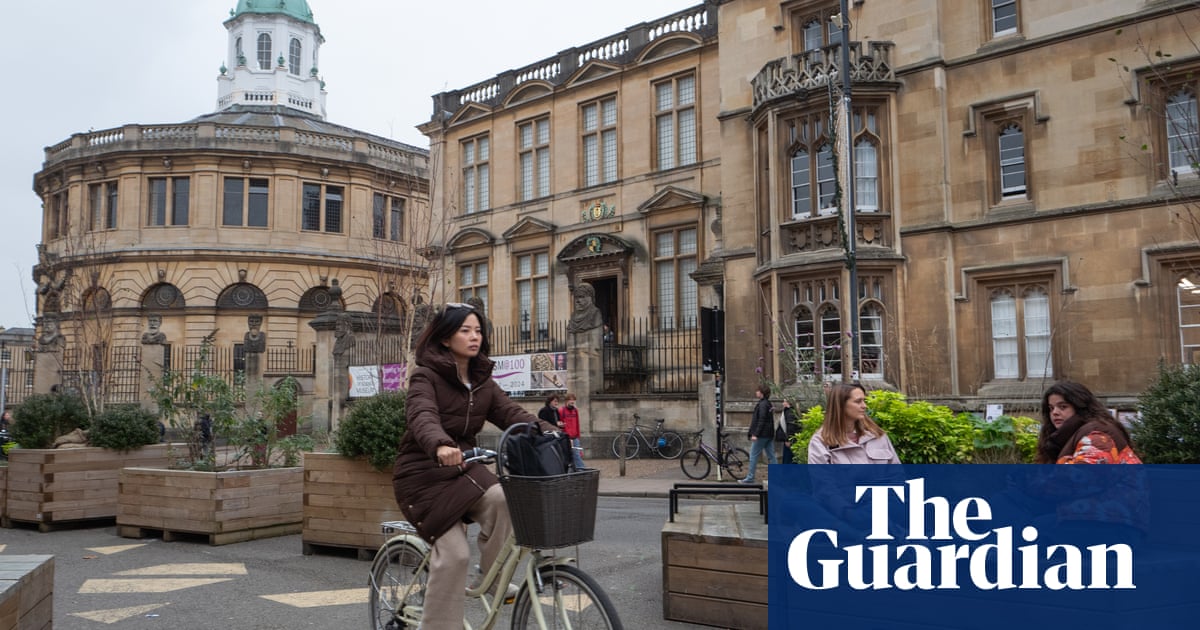Universities in the UK, many of which are in the grip of a financial crisis, “educate more national leaders than any other country in the world”, according to analysis.
Research by Jisc, the UK’s higher education digital, data and technology agency, found UK institutions had educated 50 world leaders who were in post in 2022, with the US in second place with 41, followed by the Russian Federation (14) and France (six).
Sector leaders said the research demonstrated the success of UK universities on the global stage, yet almost three in four English institutions are expected to be in the red in 2025-26, according to a recent forecast by the higher education regulator, the Office for Students.
Based on analysis of Wikidata, Jisc found the University of Oxford educated the most heads of state or government out of any UK university, with 36 since 1990, followed by the London School of Economics and Political Science (LSE) with 24.
Other institutions in the University of London federation collectively taught a further 16 leaders, followed by the University of Manchester and the University of Cambridge, which educated 13 national heads.
Current leaders who graduated from the UK higher education system include Finland’s president, Alexander Stubb, who obtained a PhD in international politics at LSE and Gaston Browne, the prime minister of Antigua and Barbuda, who got an MBA in finance at Manchester.
Namibia’s president-elect and first female leader, Netumbo Nandi-Ndaitwah, who will be inaugurated on 21 March, studied at Keele University for apostgraduate diploma in international relations and a master’s in diplomatic studies.
A number of reigning monarchs have also studied for degrees in the UK, including Naruhito, the emperor of Japan, who studied for a postgraduate history degree at Merton College, Oxford. His thesis, titled A Study of Navigation and Traffic on the Upper Thames in the 18th Century, was “very well-received”, according to the university.
Swingeing job cuts and course closures are under way across the UK sector. Vice-chancellors say tuition fees have not kept up with inflation and the recently announced modest increase, up from £9,250 to £9,535, will do little to help. A fall in the number of international students applying for visas is also contributing to the crisis.
Vivienne Stern, the chief executive of Universities UK, which represents more than 140 universities in England, Wales, Scotland and Northern Ireland, said: “We’ve always known that our universities are a national asset – and this report demonstrates just how extraordinary they are.
“In a time of increasing global instability, our universities’ soft-power benefits are more important than ever. Studying for a degree at a UK institution can shape a life, and many world leaders look back on their student days here with glowing pride, and credit their institution with who they have become today.
“It is essential that these less tangible benefits of a degree are not forgotten, and that we protect our universities, and the role they play on the global stage, both now and in the future.”
Heidi Fraser-Krauss, Jisc chief executive officer, added: “Our latest research demonstrates the unrivalled impact of UK higher education across the world. Despite recent challenges, UK universities should remain upbeat that students who have studied in UK are having in impact as statespeople across the world.”
The education secretary, Bridget Phillipson, has previously said of the crisis facing the sector: “The dire situation we inherited has meant this government must take tough decisions to put universities on a firmer financial footing, so they can deliver more opportunity for students and growth for our economy.”







